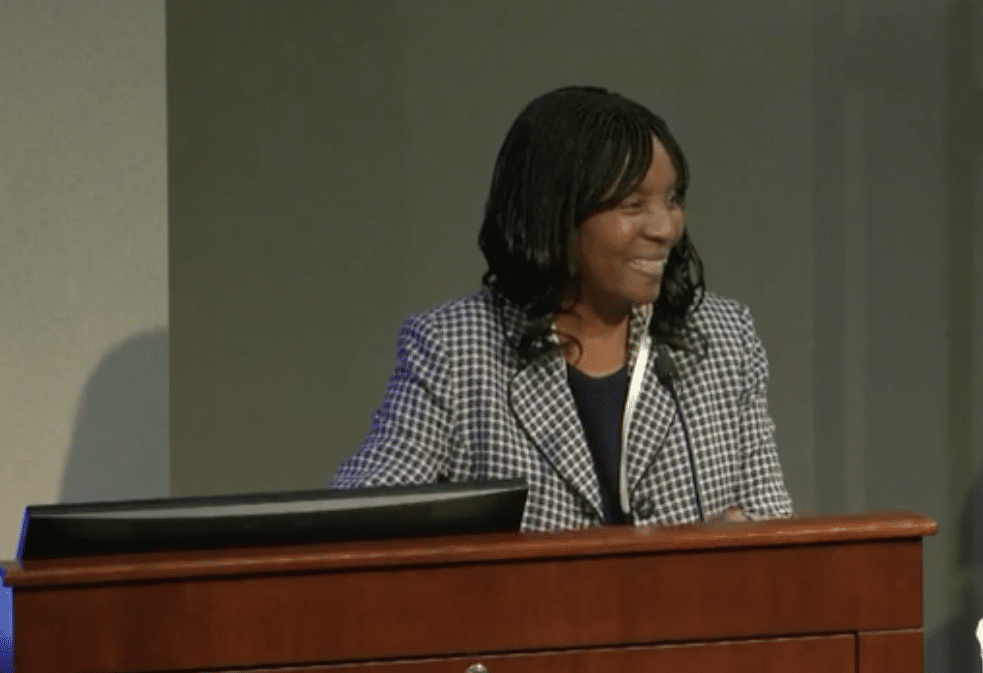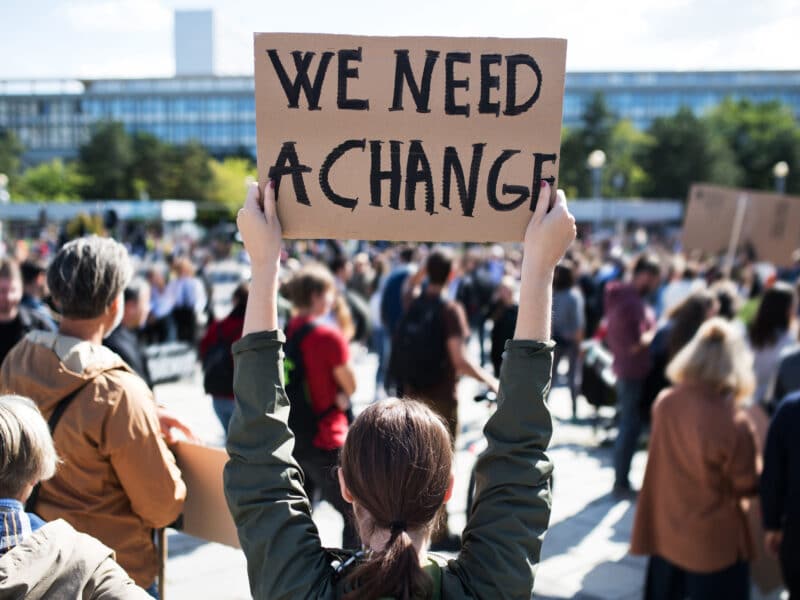Stella Babalola, PhD, has been researching social and behavior change at the Johns Hopkins Center for Communication Programs for 30 years. In honor of becoming full professor in 2020, she gave a Dean’s Lecture this month before the Johns Hopkins Bloomberg School of Public Health’s Dean, Ellen J. MacKenzie, and a crowd of Babalola’s colleagues and family.
Babalola, who is director of CCP’s Research and Evaluation team, is an accomplished researcher who is an expert at using research to support the design and evaluation of social and behavior change interventions. Throughout her career, she has studied everything from sexual attitudes and behaviors among African youth to factors influencing the uptake of childhood immunization to the role of social norms in HIV testing.
“Her global and cross-cultural perspective has been crucial to how CCP approaches its work, and Stella is much loved and admired by her colleagues there,” MacKenzie said in introducing Babalola. “No matter what she’s focused on, Stella is always working to inspire and enable people around the world to make healthy choices for themselves and their families.”
The dean read off a list of what CCP staff had to say about Babalola:
Stella is a straight-up data genius.
Stella is an energizer bunny when it comes to writing journal manuscripts and articles.
Stella is committed to capacity building and is always an advocate for empowering local leaders.
Stella is an innate manager who knows how to listen and how to balance different points of view.
Stella has no drama, no politics, no ego, just a desire to move the work forward effectively and help people in need.
Babalola’s research has shown that building the support of religious leaders can improve contraceptive use. She has demonstrated that cultivating positive attitudes about mosquito nets can encourage people to adopt this life-saving practice.
And she worked with colleagues to launch a global survey to better understand beliefs, behaviors, and norms related to COVID-19. This effort spanned 67 countries and yielded more than two million responses, providing a large-scale, rich set of data on how people think and act during a global pandemic.
Babalola’s lecture was an excellent overview of the groundbreaking work she and her colleagues have done over the past 25 years, most notably in refining and using an ideational model to help understand what drives people’s behaviors in family planning, malaria prevention, COVID-19 prevention and more.
To use the words from a manuscript Babalola and others published nearly a decade ago in the journal Global Health: Science and Practice: “Ideation is the concept that people’s actions are influenced strongly by their beliefs, ideas, and feelings (‘‘ideational factors’’) and that changing them can change behavior. … Some of these ideational factors are personal, such as what a person knows about family planning and how they think it will affect them. Others reflect social norms, such as what people believe other people will think of them if they use family planning. The more positive ideational factors a person holds, the greater the likelihood the person will adopt the desired behavior.”
The ideation model is constantly advancing, she said in her lecture, being adapted from insights gleaned from new learnings. She says that her work has shown that addressing relevant ideational variables such as perceived self-efficacy leads to behavior change and that addressing one variable may lead to changes in others.
“One thing that is constant with the ideational model is change,” Babalola said. “The one that has evolved over time and will continue to evolve. … We are never satisfied until it’s perfect. I don’t know when it will be perfect, but we continue.”
To watch the entire lecture, click here.





